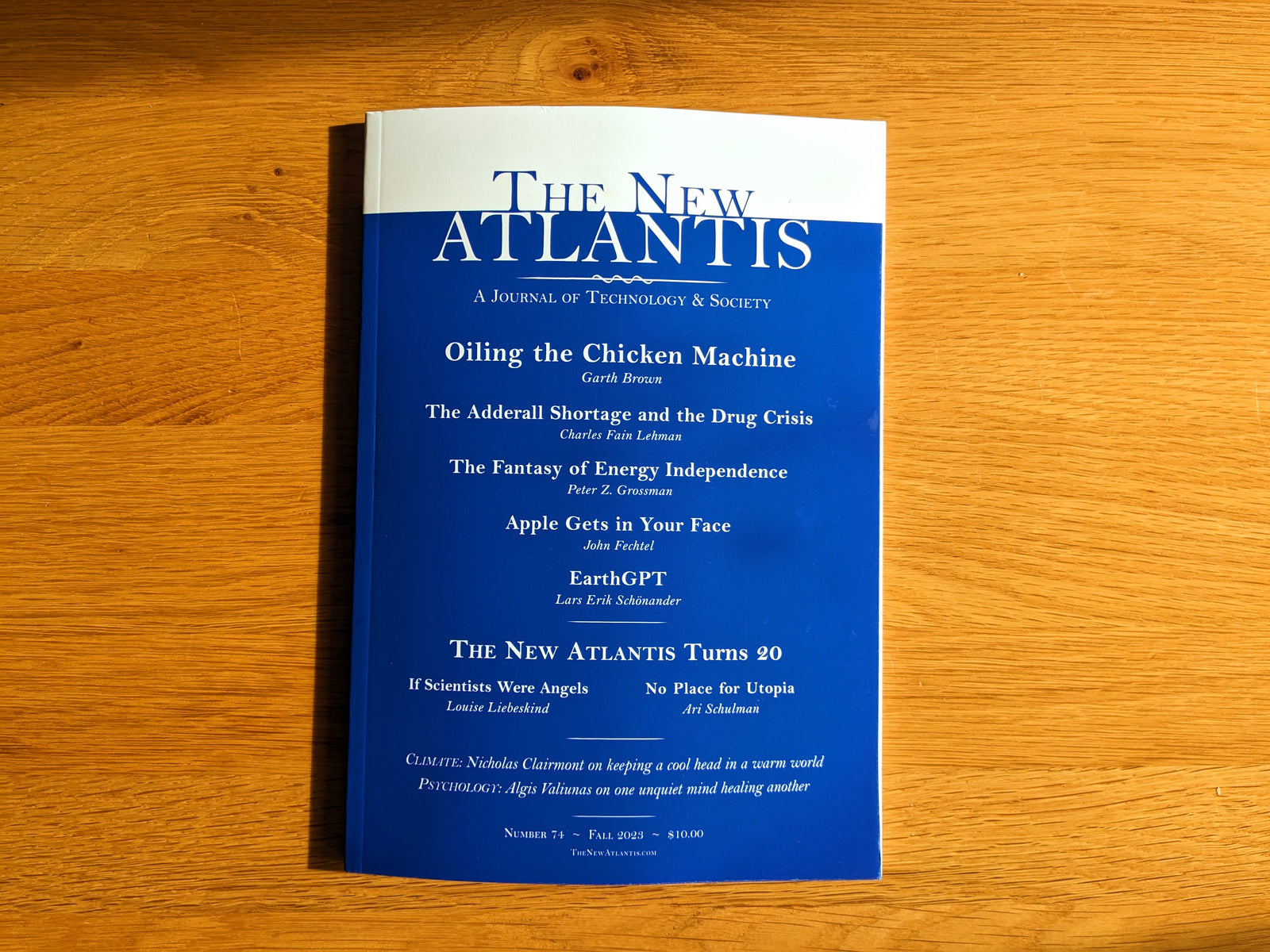On this blog I often take an interesting piece of news or commentary as a jumping off point. When it’s news — such as my post on porcine protein being grown in soybeans — I can offer useful context and analysis. When it’s a more involved project — like last week’s discussion of Walmart and sustainable farming — I enjoy offering my two cents while drawing attention to good work on what I consider an important subject. But I’m doing something different here, because the article I’ll be discussing is one I wrote. I’m about to enter a battle of wits with myself, and I’m not at all sure I like my chances.
My essay examining the assumptions that make lab-grown meat a logical extension of industrial farming appears in the most recent edition of The New Atlantis, for my money one of the most consistently interesting publications going. Unsurprisingly, I would encourage you to read the whole thing (in fact, it’s so good you should probably read it a couple times), but in case you don’t have time I’ll give you a quick rundown of my argument.
I often see people object to lab-grown meat based on an instinctive distrust, or complaints that it’s unnatural, or that it may be dangerous. But people didn’t trust margarine when it was first introduced, and it’s hard to think of something more unnatural than Doritos. Yet these and thousands of other highly engineered foods make up an increasing proportion of western diets, despite the fact that many of them are obviously unhealthy.
My claim is that an effective response to lab-grown meat must engage the broader food system. Chicken makes a great case study because of all livestock its production it most closely resembles that of a factory, but the point extends more broadly; a critique of lab grown meat must also be a critique of the current food system. That’s more or less where I leave it in The New Atlantis, first because the essay was already long enough, and second because it is a question I don’t have much of an answer to.
Small farmers and food activists generally promote either more regulations, on the grounds that the agribusiness giants need to be constrained, or fewer regulations, on the grounds that onerous red tape makes it hard for small farms to operate. For my part, I think there’s obviously truth to both of these. It’s crazy to me that meat raised in other countries can be labeled “Product of the USA” if it is packaged here. But also, regulations around things like processing, while important from a public health standpoint, are often nonsensical, and they can be extremely difficult and expensive for small producers to navigate.
I am skeptical that any amount of regulatory rejiggering could actually fix food and farming. Doing away with bad rules and judiciously imposing good rules could lead to concrete improvements, like more humane conditions for livestock and better practices in the production of cash crops. But a few more square feet of space for growing meat chickens or an increase in cover crops on acres planted to corn will not in themselves make food truly matter to more people than it currently does.
Because I’m far from clear about exactly why I care about what I do, and because I’m so easily distracted myself, I have little confidence in my ability to encourage other people to seek out an immediate connection with the material world. Food, its production, preparation, and consumption, is foundational to human existence, but our current arrangement makes that fact very easy to forget.
Further, our media environment encourages us to think that only global, or at least national, solutions are worth considering. But the sort of immediate connection to reality accessible through food and farming requires a human scale, which lab-grown meat and industrial chicken farming are designed to avoid. My hope is that we can figure out local solutions that are categorically different from the status quo, that connect people to the land in a more coherent manner than even small farms like mine currently do.

